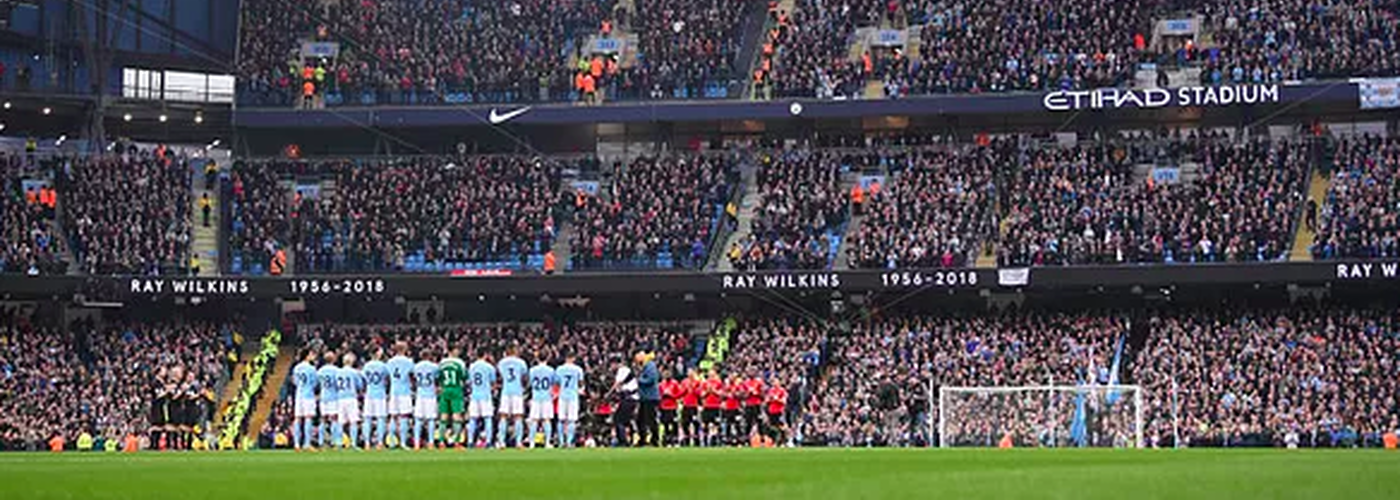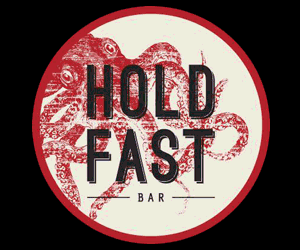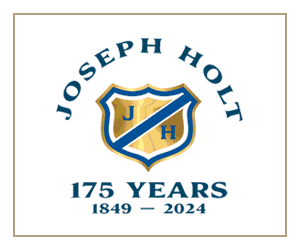Danny Moran wants to know: are Manchester City the first post-Premiership football club?
The spectacle of PSG fans determinedly decluttering Old Trafford’s East Stand last Wednesday night - it was reported that up to eight hundred seats were torn out and aerially repurposed, many in the direction of the disabled section, along with various coins, urine-filled bottles, and one congenial medium-sized match day steward - caused some to come over all Brexity at the shortcomings of the European dimension to our national game.
The future of the Premiership is in considerable peril from the ambitions of the Big Six... and it's the two Manchester clubs on the frontline of tensions
Was the carnage an outrage or a bore? Cross-channel tribalism or the revenant of terraces long since socially cleansed? The French may or may not be a nation of collaborators who see themselves as glorious revolutionaries, and the mither they perpetrated on Wednesday night may or may not be bound up with the sense of yellow-vested, pigeon-chested liberation currently strutting its stuff on the Parisian street. The two Manchester clubs habitually struggle to fill seats for these midweek European encounters, so while we might admit that the days of roiling stands, town square stand-offs and boisterous away days are much missed by those venerable enough to have jibbed on them, the sight of the French misbehaving on our manor can be easily received as another tiresome affront to our cultural sovereignty.
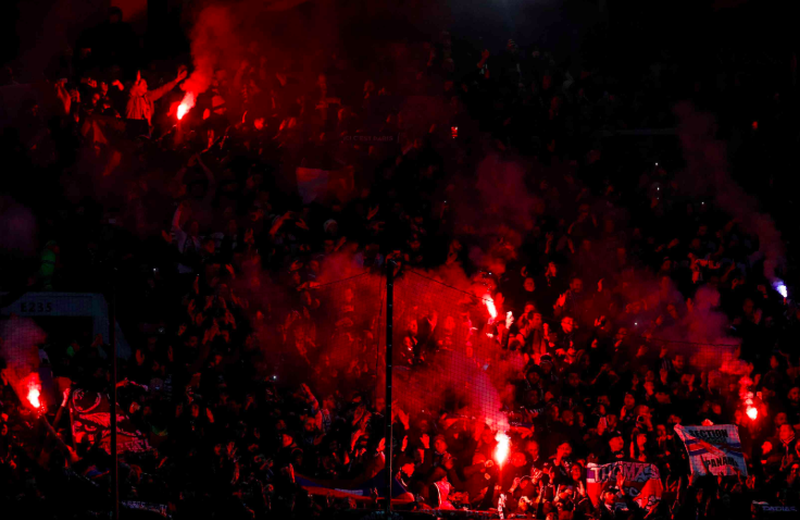
In fact, 38 days before we’re due to leave the EU it could be timely to pause and take stock: how much in love with the Champions League do we remain, as regards entertainment? Or is that Big Six mini-league at the top of the Premiership where it’s at?
Does the European treadmill devalue our domestic tournaments, detract from the romance of a cup tie at lowly Newport County, en-shade the glamour of a meaty Monday night clash at Stamford Bridge?
Or is the continental game the pinnacle of the sport, over which we should neglect to give way to our inner reactionary bastard?
Because the thing is, it’s in no way a contrived or false dichotomy to consider these things. The way we’re headed it would be unfortunate if the English game were to find itself falling between two broken and increasingly disappointing worlds.

The Club
The mind goes back to just last month. After November’s revelations in German magazine Der Spiegel exposed the breathtaking extent of Manchester City’s attempts to subvert Uefa’s Financial Fair Play laws - the statutory fig leaf intended to retain a semblance of parity in the European game - a new book was published which went much further in painting the picture of a club whose financial model is not remotely consistent with participation in a national football league.
According to Jonathan Clegg and Joshua Robinson, senior staffers at the Wall Street Journal who cover the English game in their newspaper’s back pages, the future of the Premiership is in considerable peril from the ambitions of the Big Six (Arsenal, Chelsea, Spurs, Manchester City, Manchester United and Liverpool).
Of these, the two Manchester clubs are on the frontline of tensions threatening to tear the Premiership apart. But it’s City in particular who appear to have their eyes fixed on a horizon in which top flight Saturday football as we know it is a thing of the past.
Manchester City’s business plan is setting those clubs on a course which may sooner or later destroy the Premiership as we know it...
Across the three hundred or so pages of The Club: How The Premier League Became The Richest, Most Disruptive Business In Sport the authors present a history of the world’s most-watched sports franchise which arrives at some sobering conclusions with respect to its short-to-medium-term prospects.
Drawing on interviews with owners, managers and insiders at the biggest clubs – from Arsene Wenger to David Gill, Pini Zahavi to Stan Kroenke, taking in the current front office at Eastlands and an array of off-the record contributions from insiders at the top of the game – it describes an arc which begins in 1992 with Sky Television’s reinvention of football as family entertainment, and closes with High Finance’s re-conception of it as a global media chip.
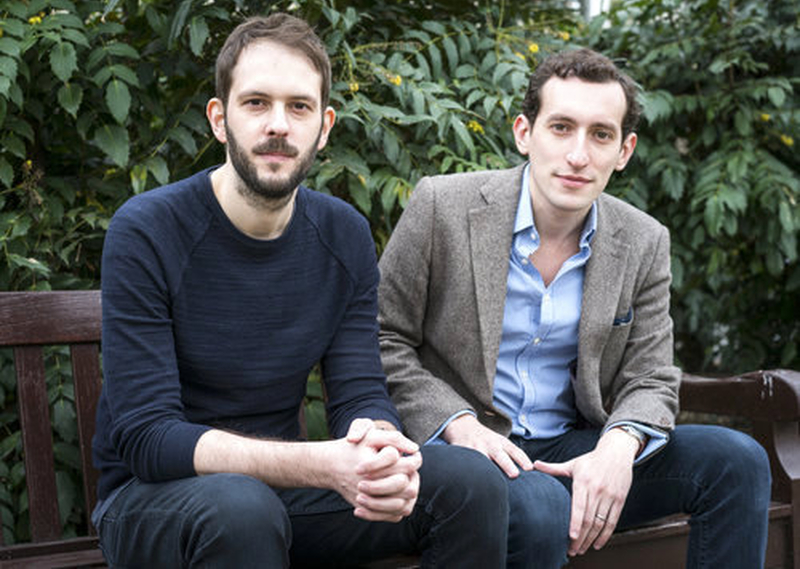
The notion of a European Super League has long bedevilled the cares of domestic football fans. When in 2008 the idea of a ‘39th game’ was floated the howls of derision were enough to see the project shelved in short order.
What Robinson and Clegg reveal, though, is that, quietly and on the sly, the short haul league fixture is very much back on the agenda – and that’s only the beginning of the tale.
In fact, the picture they paint of the Big Six with respect to the breakaway idea is not merely that ‘they would if they could’ (which they certainly would) or even that the clubs routinely and explicitly leverage it is as a threat at the negotiating table (which they certainly do), but rather that it is the scope and ambition of Manchester City’s business plan which is setting those clubs on a course which may sooner or later destroy the Premiership as we know it.
All of which serves us up in a double bind, of course. A breakaway would be so domestically unpopular that many think it could never get off the ground. The financial imperatives of the elite, by contrast, suggest a direction of traffic in which it’s only a matter of time before the money-men, and that coagulating mini-league, simply demand that it needs-must has to come to pass.
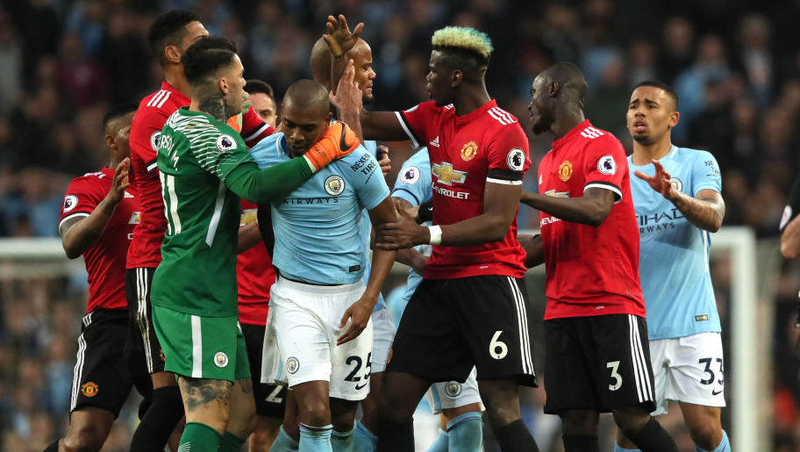
Post-Premiership
It’s at an October 2017 meeting at the Locanda Verde restaurant in Tribeca, New York, where we can place a small coterie of plotting proprietors from English football’s elite - Joel and Avram Glazer, Ed Woodward, Liverpoool owner John W Henry and Arsenal owner Ivan Gazidis - sitting down over linguini and blue crab to war game a grab for a greater share of the Premiership’s unique and ever-giving goldmine: its £3.5bn revenue from overseas television rights.
Previously, this had been divvied equally between the league’s twenty member clubs, as per the Premier League’s Founder Members Agreement. The Big Six, however, have long since found this to be a restraint on their ambitions. They know that football fans from China to Chile, Los Angeles to Laos, across the 212 global territories where Premier League football is sold, do not get up at four in the morning to watch Burnley park the bus at Molineux on a given Sunday.
So why should they share the money as if it were so?
“We only want what’s fair,” they say. But with little chance of persuading the other fourteen clubs to cut the cake according to Premier League position, the breakaway plan has grown like a scab on an open wound.
“Those Spaniards at Manchester City think they’re superior to everyone else,” said West Ham owner David Sullivan
This is no idle reverie. New York real estate developer Stephen Ross is the man earmarked to make a Super League happen, should the day finally come, with sports promoter Charlie Stillitano the barker to shill it across the planet. Ross is the owner of the Miami Dolphins, a man with a mien for showcase soccer events when pre-season tour time comes around; PR guy Stillitano a fixer said to have enjoyed better access to the likes of Jose Mourinho and Alex Ferguson than even the Glazers.
These men wait in the wings as the rift grows ever wider between the Big Six and what we may as well call 'The Rest'.
Make no mistake, write Robinson and Clegg, the Premiership gravy train is said to be grinding to a halt. Once a happy ship, it’s now a nest of feuding factions, each blaming the other for threatening to sink the ship. The biggest agitator of all is Manchester City, who have railed loudest and longest against the status quo.
To be sure, Txiki Begiristain, Ferran Soriano and the club’s other executives would have no truck whatsoever with any stateside socialist notions of how elite sport should be administered. To them, the NFL model - with its salary caps and drafts for the best young players, and the underlying belief that competitiveness maximises revenue - is completely anathema. They want to win everything, and by as great a margin as possible. Money is no object and the reach they’re looking for is truly global. They see their chief rivals, after Real Madrid and Barcelona, as our feng shui friends at Qatar-owned Paris St Germain.
The latter’s capture first of Neymar then Kylian Mbappe was taken personally in East Manchester, where the acknowledged aim is not merely to sign the best players but to prevent the other best teams from signing the best players ahead of them.
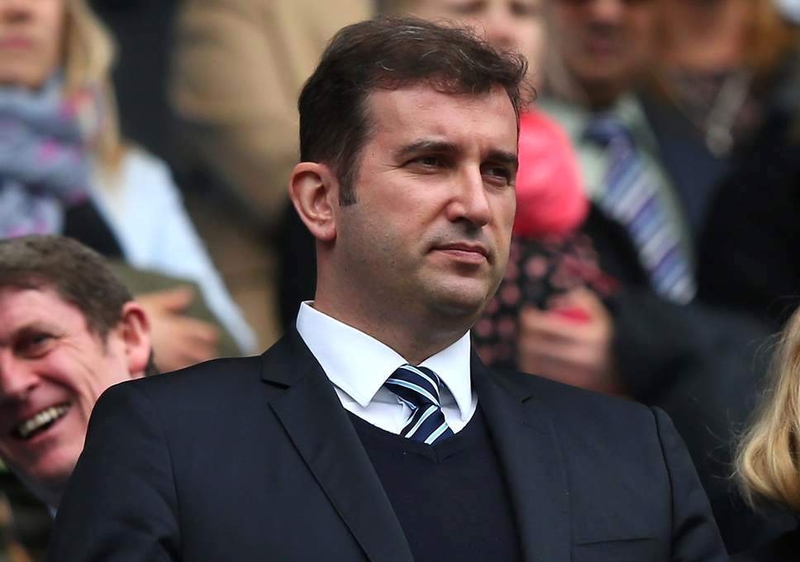
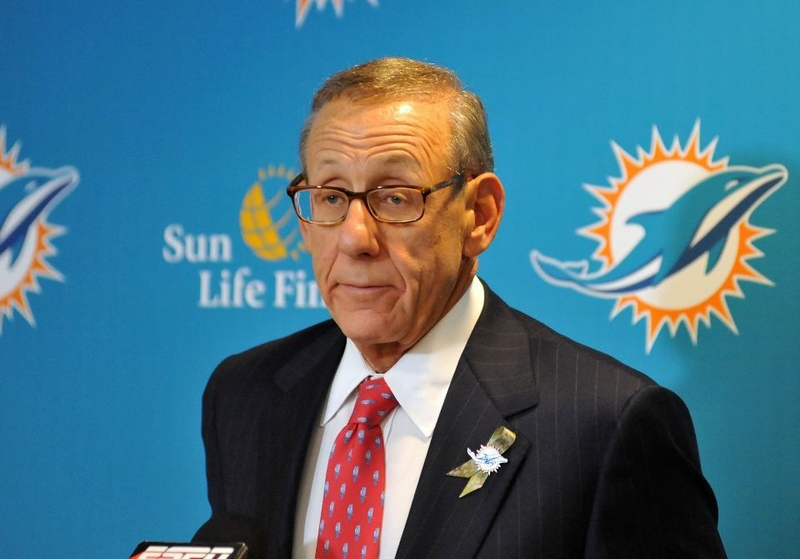
City’s super-sized perspective, though - what with the sky-blue-branded partner clubs in New York, Melbourne and (excuse the dress code) Tokyo - is making the champions increasingly unpopular among their domestic peers, who have become disdainful of a club which appears to conduct itself with the breeding of an institution whose history stretches all the way back to 2008.
“Those Spaniards at Manchester City think they’re superior to everyone else,” said West Ham owner David Sullivan of City’s contempt towards those outside the top six. “I think it’s just greed.”
It isn’t just City, though. Over at the Theatre of Restricted Legroom they “do what we want”, as everybody knows, and the rift with The Rest is said to have significantly widened after Ed Woodward engineered a Big Six ‘huddle’ in order to fettle a £564m Chinese PPV deal back in 2016 on behalf of the division. No room for unfancied outsiders in that particular velvet bag.
Meanwhile the American contingent among the Premier League’s chairmen, who account for a quarter of the Premiership’s clubs, are reported to be increasingly bummed out by English prejudice regarding their footballing credentials, which they perceive not to apply to peers originating from elsewhere in the world. Empathy towards the English and their own sensitivities is draining away.
There was widespread agreement among The Rest, last season, that runaway champions City are becoming an existential threat to the league. Spending other clubs out of sight and winning by unprecedented margins points to an outcome staring everyone in the face, and it’s difficult not to pick up on what appears to be different about the Eastlands operation.
That City are being run, de facto, as the first post-Premiership football club.
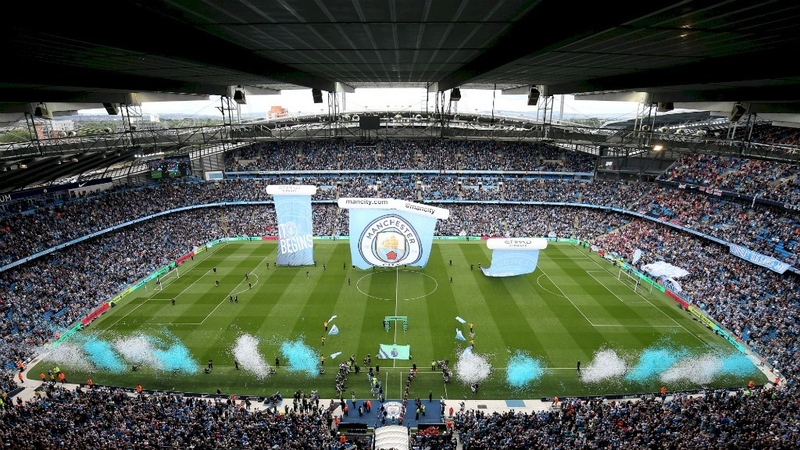
Holidays In The Sun
As Brexit looms and the pound’s fall continues to depress club revenues, it’s hardly out of character for some to be pushing to play meaningful Premier League fixtures overseas. They well know the commercial value of the tour circuit, and that that so-called ‘39th game’ was estimated some ten years ago to be worth at least £5m a pop. It’s potential income the big clubs feel they can’t afford to ignore.
If not a ‘39th game’, then, how about simply an overseas fixture early on in the season? That’s a popular alternative in many boardrooms - and not just in England.
“This is a great idea!” exclaimed Soriano, after La Liga announced just such a venture, late last year. Barcelona’s recent league match versus Girona, scheduled to be played on January 27 at Miami’s 65,000 capacity Hard Rock Stadium, was said to augur an unprecedented fifteen-year deal with Stillitano’s Relevent Sports company - before Fifa, Eufa and Concacaf came together to put a stop to it.
For Soriano, though, there’s little ambiguity over what the Spanish proposal signified.
“This is an idea that takes the business to another dimension,” he said, speaking like a man who could see the value in a square shaped ball.
“If the Premier League decides to come here we have our hand up” says Stillitano of a notional Super League. “We’re ready to do it. We’re uniquely qualified to make it a big event.”
“The clubs would all like to do it,” affirms Premier League Executive Chairman Richard Scudamore. “But we’re realistic. Until fan, political and media reaction is any warmer towards it, it won’t happen.”
That hasn’t prevented his organisation exploring a preliminary partnership with US broadcaster NBC, however.
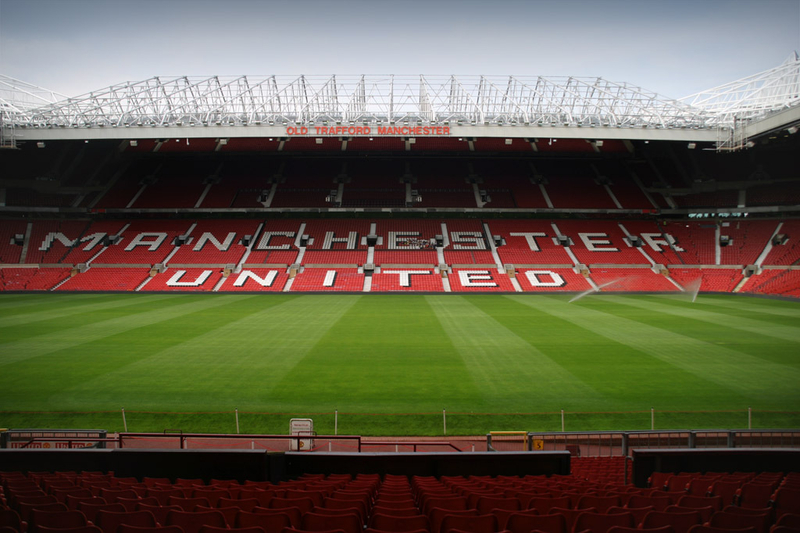
So is a breakaway inevitable? The more ticket prices are allowed to rise, the more sense it makes. Overseas rights are both the lure and indeed the sticking point.
“There is a desire to destroy the existing structures and rebuild around the Big Six”, conclude authors Robinson and Clegg.
And the Manchester teams are very much at the heart of that.
When it came to it, the most recent settlement regarding overseas television rights saw the Big Six manage to persuade The Rest to accept that a third of the revenue should be apportioned according to league finishing place - signifying the first ever amendment to the Premiership’s original Founder Members Agreement.
That promises to concentrate the wealth ever more assuredly in their hands.
None of us knows the future and many things are possible. Andrea Agnelli, pezzo grosso at Juventus, wants the domestic competitions shunted to midweek so European games can take centre stage at the weekend. As each day brings new twists to the tale the world becomes unmoored from its recent past. Another club to be added to the Abu Dhabi portfolio, another smile beneath that greying thatch on the head of the Baby Faced Caretaker Manager.
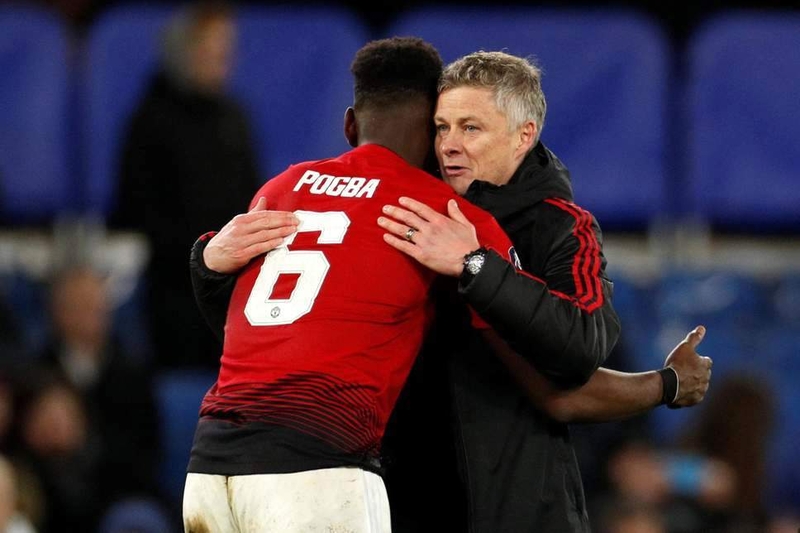
Just a few years ago you could go down to Altrincham on a Wednesday night to watch the teenage Paul Pogba shine for United’s second string. It was the era of tiki-taka and the hammering the Reds received in the European final of 2011.
The young Frenchman had clearly been marked out as a cornerstone of the hard press.
“Pogba! Close him down!...Pogba, back him up!...Pogba!!” reserve team manager Warren Joyce would holler from the Moss Lane touchline, over and again.
Some things don’t quite turn out as they’re anticipated.
Watching the Frenchman flourish unrestricted at Stamford Bridge last night, or Phil Foden fire home with such elegance at Newport on Saturday teatime, you could still wonder if the meaning will drain away from domestic football as the divide grows ever wider between the haves and have-nots.
Caught between the mini-league and the notional Super League, could English football fall between the cracks? Or will the Premiership break apart? As the top clubs continue to chip away at the league’s founding ethos they become increasingly unhinged from the culture which used to sustain them.
In a world where football club owners sail the oceans in Picasso-filled yachts the domestic game faces challenges as never seen before. And it’s in Manchester, one of the greatest footballing cities, where much of the coming fire is being stoked.
Like that? You might also want to read Manchester and the sheikhs: is it time to make a stand?
Follow Danny Moran on Twitter @dannyxmoran





